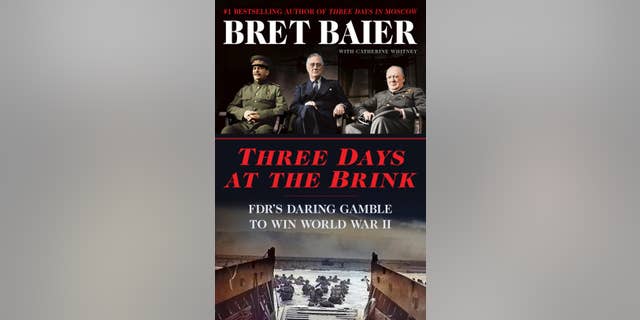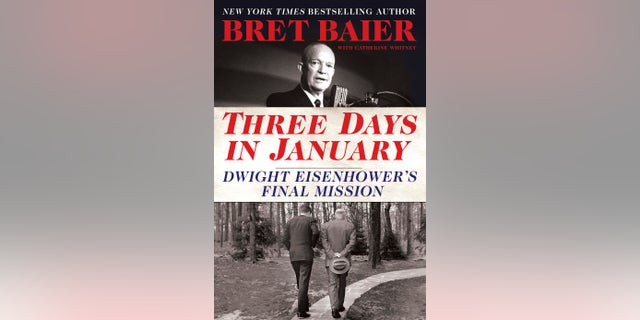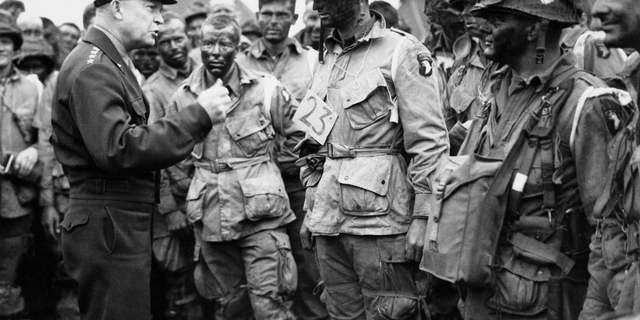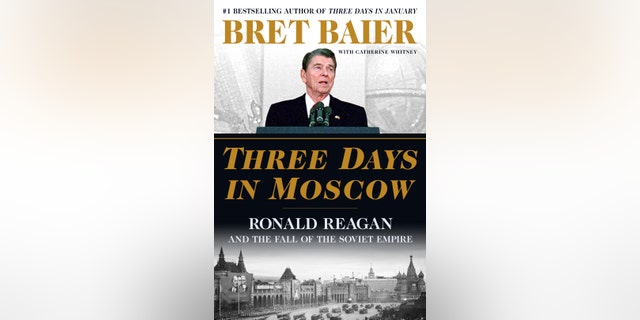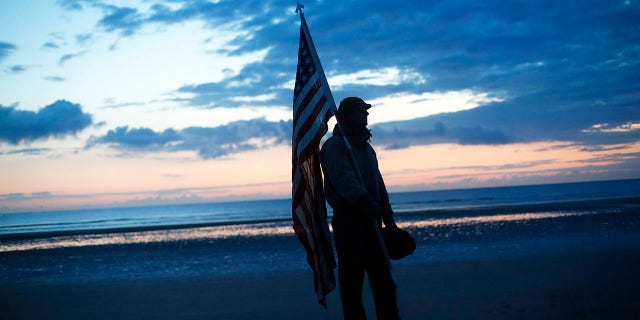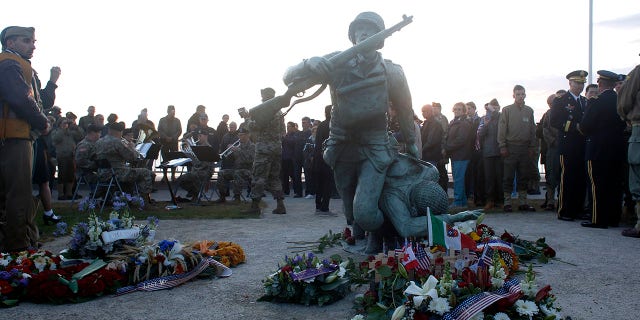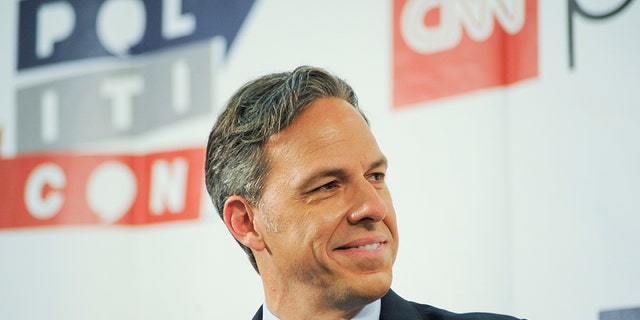President Trump has taken the gloves off in his ongoing feud with House Speaker Nancy Pelosi.
Speaking exclusively to Fox News’ Laura Ingraham in Normandy, France, in an interview that aired Thursday, the president first took time to pay tribute to the heroes who fought on D-Day 75 years ago, describing them as “incredibly brave people” who displayed incredible “valor.”
Then, the president switched gears, slamming Pelosi, D-Calif., as a “nasty, vindictive, horrible person” -- after saying he had “tried to be nice to her.”
“I think she’s a disgrace. I actually don’t think she’s a talented person, I’ve tried to be nice to her because I would have liked to have gotten some deals done,” Trump said on “The Ingraham Angle.”
“She’s incapable of doing deals, she’s a nasty, vindictive, horrible person, the Mueller report came out, it was a disaster for them.”
Trump then referenced former Special Counsel Robert Mueller’s report, suggesting some Democrats hoped it would give them the so-called silver bullet to take him down.
“A couple of them worked for Hillary Clinton, they then added five more, also Democrats. With all of that, two-and-a-half years, think of it, from before I even got elected, they’ve been going after me and they have nothing.”
Ingraham then asked Trump if he cared whether or not Mueller would testify publicly about his report. The president used the question as another chance to unload on Pelosi.
“Let me tell you, he made such a fool out of himself the last time she -- because what people don’t report is the letter he had to do to straighten out his testimony because his testimony was wrong but Nancy Pelosi, I call her nervous Nancy, Nancy Pelosi doesn’t talk about it,” Trump told Fox News.
“Nancy Pelosi’s a disaster, OK, she’s a disaster and let her do what she wants, you know what? I think they’re in big trouble because when you look at the kind of crimes that were committed, and I don’t need any more evidence, and I guess from what I’m hearing there’s a lot of evidence coming in.
“And then ask Nancy, why is her district [having] drug needles all over the place? It’s the most disgusting thing what she’s allowed to happen to her district, with needles, with drug addicts... with people living on the sidewalk.”
Trump continued, referencing Pelosi’s reported comment to fellow top Democrats that she would like to see him in “prison.”
“It was a horrible, nasty, vicious statement while I’m overseas... She didn’t want to – she is a terrible person and I’ll tell you her name, it’s nervous Nancy because she’s a nervous wreck.”
Pelosi, as Politico reported, made the remark while defending her stance against impeaching the president in an evening meeting with House Judiciary Chairman Jerry Nadler, D-N.Y., and other top Democrats.
“I don’t want to see him impeached, I want to see him in prison,” she said, according to multiple Democratic sources familiar with the meeting. House Intelligence Chairman Adam Schiff, D-Calif., Oversight Chairman Elijah Cummings, D-Md., Ways and Means Chairman Richard Neal, D-Mass., and Foreign Affairs Chairman Eliot Engel, D-N.Y., also reportedly attended the meeting.
Trump also discussed his potential 2020 opponent, former Vice President Joe Biden, during his interview with Ingraham.
After being asked about Biden downplaying the potential threat of China to the U.S. at a recent town-hall event, Trump said: “He just doesn't get it, he just doesn't get it.”
“How happy would President Xi be to have Joe Biden be the nominee of the Democratic party,” Ingraham followed up, to which the president replied: “Well he wants him, he wants him.”
Elsewhere during the president’s wide-ranging interview with Ingraham, he said Mueller made “such a fool” out of himself last week when he delivered his first and only public statement about the Russia investigation.
“Let me tell you, he made such a fool out of himself ... because what people don’t report is the letter he had to do to straighten out his testimony because his testimony was wrong,” Trump told Ingraham.
Trump was referring to Mueller’s initial suggestion that the president was not charged with an obstruction-of-justice offense because of longstanding Justice Department policy.
“Charging the president with a crime was not an option we could consider,” Mueller said last week, citing an Office of Legal Counsel (OLC) opinion stating that a sitting president could not be indicted.
“If we had confidence that the president clearly did not commit a crime, we would have said that. ... We concluded that we would not reach a determination one way or the other about whether the president committed a crime,” Mueller said.
Fox News' Brooke Singman contributed to this report.
Speaking exclusively to Fox News’ Laura Ingraham in Normandy, France, in an interview that aired Thursday, the president first took time to pay tribute to the heroes who fought on D-Day 75 years ago, describing them as “incredibly brave people” who displayed incredible “valor.”
Then, the president switched gears, slamming Pelosi, D-Calif., as a “nasty, vindictive, horrible person” -- after saying he had “tried to be nice to her.”
“I think she’s a disgrace. I actually don’t think she’s a talented person, I’ve tried to be nice to her because I would have liked to have gotten some deals done,” Trump said on “The Ingraham Angle.”
“She’s incapable of doing deals, she’s a nasty, vindictive, horrible person, the Mueller report came out, it was a disaster for them.”
Trump then referenced former Special Counsel Robert Mueller’s report, suggesting some Democrats hoped it would give them the so-called silver bullet to take him down.
More from Fox News Flash
“A couple of them worked for Hillary Clinton, they then added five more, also Democrats. With all of that, two-and-a-half years, think of it, from before I even got elected, they’ve been going after me and they have nothing.”
Ingraham then asked Trump if he cared whether or not Mueller would testify publicly about his report. The president used the question as another chance to unload on Pelosi.
“Let me tell you, he made such a fool out of himself the last time she -- because what people don’t report is the letter he had to do to straighten out his testimony because his testimony was wrong but Nancy Pelosi, I call her nervous Nancy, Nancy Pelosi doesn’t talk about it,” Trump told Fox News.
“Nancy Pelosi’s a disaster, OK, she’s a disaster and let her do what she wants, you know what? I think they’re in big trouble because when you look at the kind of crimes that were committed, and I don’t need any more evidence, and I guess from what I’m hearing there’s a lot of evidence coming in.
“And then ask Nancy, why is her district [having] drug needles all over the place? It’s the most disgusting thing what she’s allowed to happen to her district, with needles, with drug addicts... with people living on the sidewalk.”
Trump continued, referencing Pelosi’s reported comment to fellow top Democrats that she would like to see him in “prison.”
“It was a horrible, nasty, vicious statement while I’m overseas... She didn’t want to – she is a terrible person and I’ll tell you her name, it’s nervous Nancy because she’s a nervous wreck.”
Pelosi, as Politico reported, made the remark while defending her stance against impeaching the president in an evening meeting with House Judiciary Chairman Jerry Nadler, D-N.Y., and other top Democrats.
“I don’t want to see him impeached, I want to see him in prison,” she said, according to multiple Democratic sources familiar with the meeting. House Intelligence Chairman Adam Schiff, D-Calif., Oversight Chairman Elijah Cummings, D-Md., Ways and Means Chairman Richard Neal, D-Mass., and Foreign Affairs Chairman Eliot Engel, D-N.Y., also reportedly attended the meeting.
Trump also discussed his potential 2020 opponent, former Vice President Joe Biden, during his interview with Ingraham.
After being asked about Biden downplaying the potential threat of China to the U.S. at a recent town-hall event, Trump said: “He just doesn't get it, he just doesn't get it.”
“How happy would President Xi be to have Joe Biden be the nominee of the Democratic party,” Ingraham followed up, to which the president replied: “Well he wants him, he wants him.”
Elsewhere during the president’s wide-ranging interview with Ingraham, he said Mueller made “such a fool” out of himself last week when he delivered his first and only public statement about the Russia investigation.
“Let me tell you, he made such a fool out of himself ... because what people don’t report is the letter he had to do to straighten out his testimony because his testimony was wrong,” Trump told Ingraham.
Trump was referring to Mueller’s initial suggestion that the president was not charged with an obstruction-of-justice offense because of longstanding Justice Department policy.
“Charging the president with a crime was not an option we could consider,” Mueller said last week, citing an Office of Legal Counsel (OLC) opinion stating that a sitting president could not be indicted.
“If we had confidence that the president clearly did not commit a crime, we would have said that. ... We concluded that we would not reach a determination one way or the other about whether the president committed a crime,” Mueller said.
Fox News' Brooke Singman contributed to this report.










